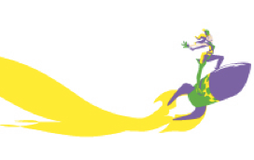Management
To be successful, every endeavor needs a leader. It's easy to confuse being a leader with being an autocrat, but effective leadership and management is enabling and motivating action, channeling a group's efforts into a productive direction and removing the obstacles that prevent others from achieving goals. I enjoy this challenge and have found it exhilarating when I've been able to fill this role effectively.

At McGraw-Hill Education, I co-led a content creation team that was creating an interactive staff training product for new employees and contractors. I worked collaboratively on end-to-end product development, graphic design, user experience, drafting and polishing text, building and testing, as well as project management in content development and planning, managing milestones in the project plan, using analytics tools and research data, and publishing courseware.
At Microsoft, I acted as a team leader for the documentation team on a Microsoft Research project called Virtual Worlds. My team was tasked with developing a comprehensive documentation set for a new product from the ground up, within the framework of the larger development team. From Virtual Worlds, I learned about scoping projects; how to coordinate the needs of a diverse team; and how to motivate a team and keep them on track in response to swiftly changing demands and schedule changes.
|
Outside of my professional life, I chaired the production committee for a local convention, Foolscap for three years, I led the committee through all aspects of planning and running the event, including site logistics, promotion and PR, fundraising and budget management, and program/activity design and scheduling. Running Foolscap taught me how to coordinate complex operations in accordance with a larger vision, how to manage interpersonal issues to enable people to work together effectively, and how to motivate a volunteer force to produce great work without the incentive of pay - and have fun doing it.
|
In many ways, the most fundamental type of management is self-management, and my years working as a freelancer and independent contractor have provided me with strong self-management skills. I've become good at quickly understanding where my work fits into a project and how to fit into teams easily by working well with a variety of people. I know how to stay flexible and react quickly to changing situations, and how to build trust by reliably meeting deadlines time after time. I also work well independently, having become adept at motivating myself and staying organized.
At the University of Washington iSchool, I've studied management academically. One high-level management project I worked on was a proposal for a community center focused on information literacy and technology, called The Tech Station. I analyzed the needs of a community and considered how to address its digital divide, designed a project to fill these needs, then wrote a proposal explaining how I would set up the project, fund it, and run it.
|
Another management project I created was planning a special library to serve the staff of the EMP Museum in Seattle. I researched the field to understand its information needs, decided how best to establish the library and position it to fill the needs as well as how to manage and fund it. Then I wrote a prospectus and a development report to explain my ideas, and finally wrote and created a presentation to make this proposal to upper-level management.
|
|

Early in my career, I acted as team leader for the editorial group managing the Homelife section of the PRODIGY service. From this work, I learned how to coordinate a team effort, keep all the members of the team informed on changing company policies, and advocate for my team and their needs with upper management. I also learned how to represent my team and their work to the users, answering questions and interpreting our goals in a way that others could understand.

